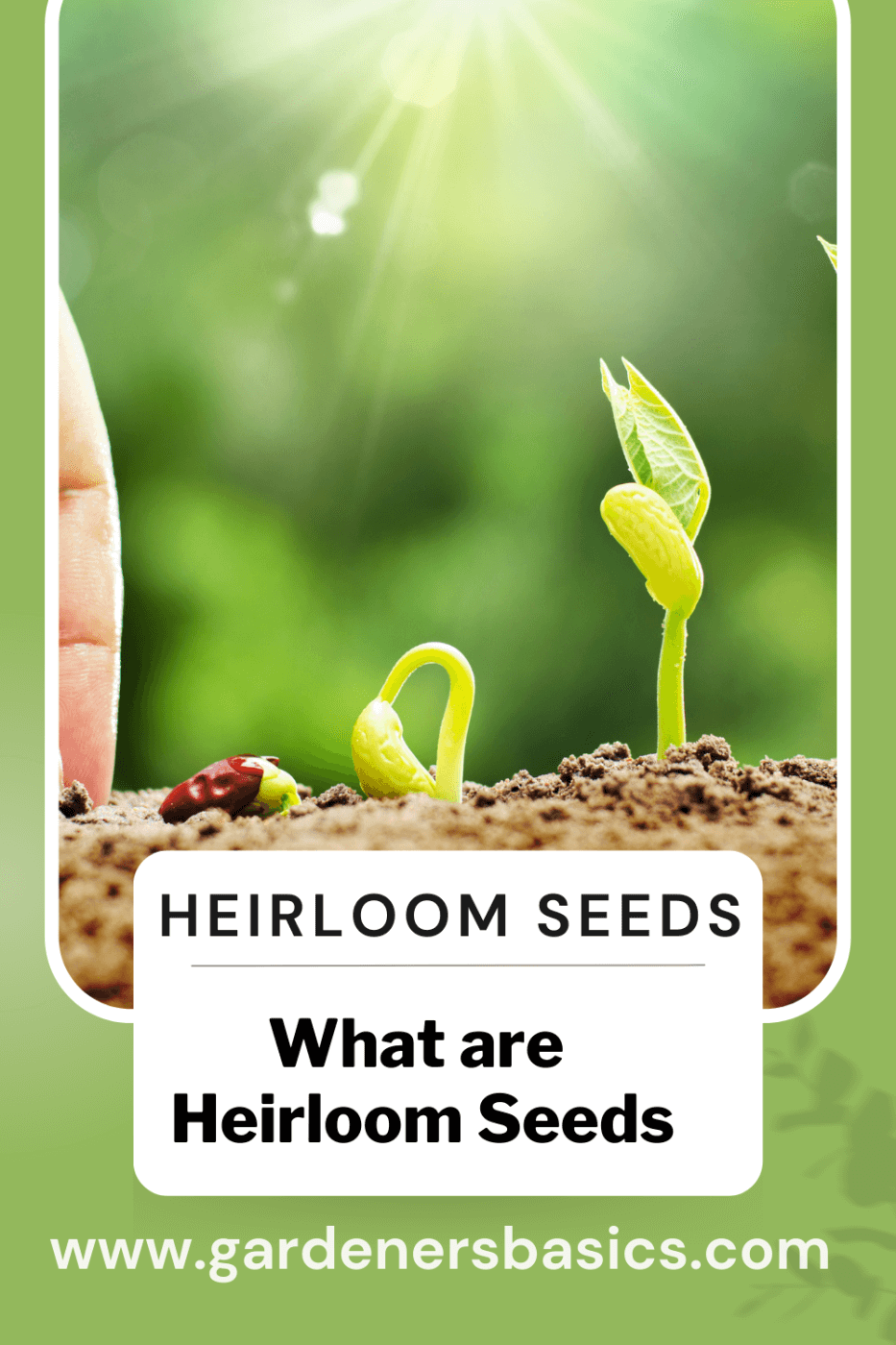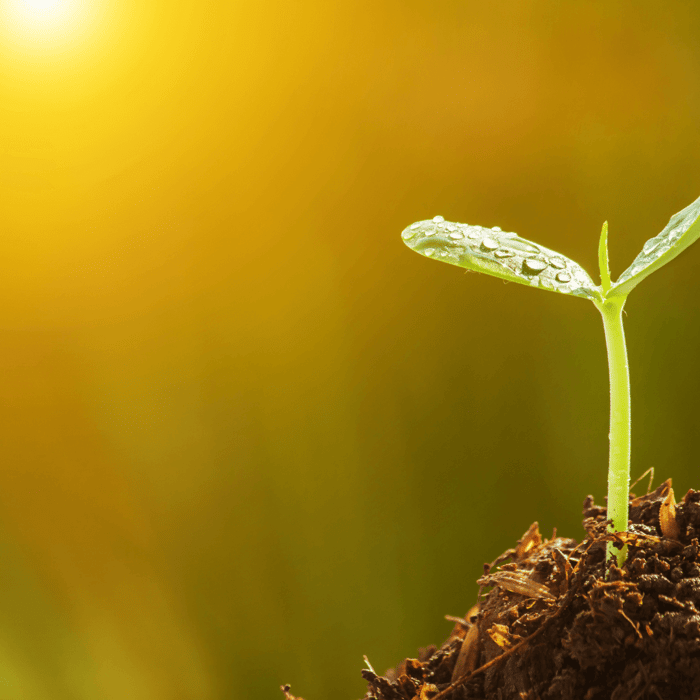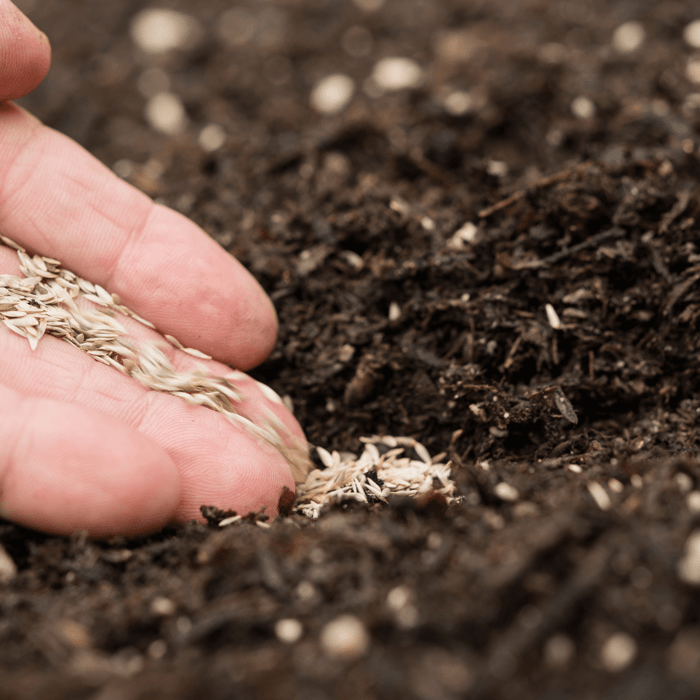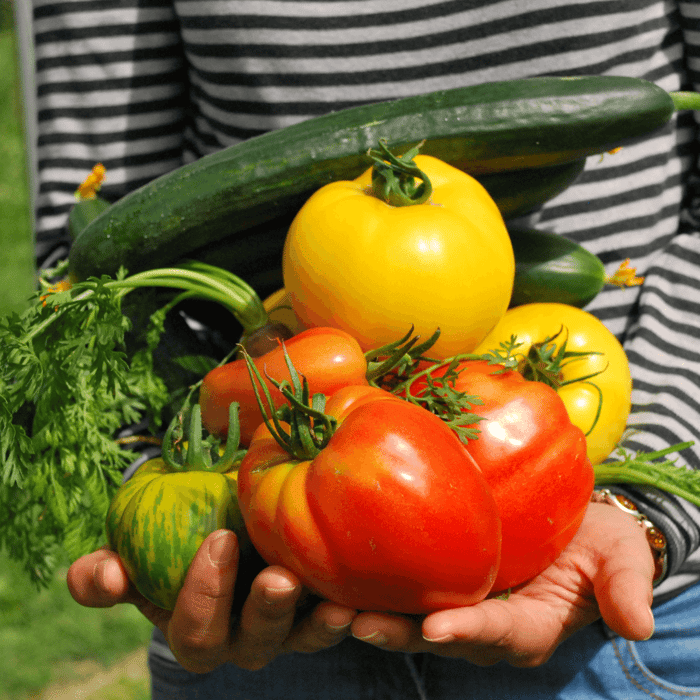As a passionate gardener, I became concerned about losing our heirloom seeds and replacing them with a hybrid. It has become our passion to help preserve heirloom seeds so future generations have them. In this article, I will take you through the world of heirloom seeds, their history, benefits, the importance of preserving genetic diversity in our food supply, and just exactly what are heirloom seeds?
What are Heirloom Seeds?
Heirloom seeds are the seeds of traditional plant varieties that have been passed down from generation to generation. They are prized for their unique flavor, color, and texture, and are grown from seeds that are true to type and retain their unique genetic traits from one generation to the next.
Heirloom seeds are grown from open-pollinated plants, meaning they are allowed to self-pollinate or cross-pollinate with other plants of the same species. This natural process results in seeds that are true to type and retain their unique genetic traits from one generation to the next. Heirloom seeds are non-GMO and are not genetically modified, making them a healthier option for both you and the environment. There are many heirloom seed packet varieties that are true to the original plant that you can grow and save for the future.
Tomato Seed Assortment | 8 Variety Pack

$15.95
8 Tomato Seeds Variety Pack – Heirloom, Non-Hybrid, Open-Pollinated, Non-GMO – Perfect for Home Gardens! Unlock the secrets to a thriving tomato garden with our premium 8 Tomato Seeds Variety Pack! Carefully curated for tomato lovers and gardening enthusiasts alike, this… read more
History of Heirloom Seeds
Heirloom seeds have a rich history that dates back to the early settlers in America, who brought with them a variety of seeds from their homeland. These seeds were then passed down from generation to generation and became the foundation for our current seed stock. Over the years, the use of heirloom seeds declined as hybrid seeds gained popularity.
Hybrid seeds are created by crossing two different varieties of plants to create a new variety with desired traits, such as disease resistance or larger fruit. However, the popularity of heirloom seeds has been on the rise in recent years as more and more people are interested in growing their own food and preserving the genetic diversity of our food supply.
Benefits of Growing Heirloom Seeds
There are many benefits to growing heirloom seeds, including:
-
Unique flavor, color, and texture: Heirloom plants are prized for their unique flavor, color, and texture, and are known for offering a diverse range of shapes, sizes, and colors.
-
Adaptability: Heirloom plants are known for their ability to adapt to local growing conditions, making them ideal for home gardeners.
-
Organic: Heirloom seeds are often grown organically, as they are not genetically modified and do not require the use of chemical inputs to maintain their unique traits.
-
Cost-effective: Heirloom seeds can be saved and grown for 50 years or more, making them an excellent investment for home gardeners.
-
Emergency and survival: Heirloom seeds are a great option for those looking to grow their own food in case of emergencies or for survival purposes.
-
Support for local agriculture: By growing heirloom seeds, you are supporting local agriculture and preserving the cultural heritage of traditional plant varieties.
Importance of Genetic Diversity
Preserving genetic diversity in our food supply is crucial for the future of agriculture. A diverse gene pool provides the foundation for plant breeding and adaptation to changing environmental conditions, such as pests, diseases, and climate change. When we grow heirloom seeds, we are preserving the genetic diversity of our food supply and ensuring that future generations have access to a wide range of flavors, colors, and textures.
Heirloom Varieties
There are many different heirloom varieties available, including:
- Heirloom vegetables: Heirloom vegetables, such as tomatoes, carrots, beans, and cucumbers, offer a diverse range of shapes, sizes, and colors and are known for their delicious flavor.
-
Heirloom herbs: Heirloom herbs, such as basil, rosemary, and thyme, add unique flavor and fragrance to your garden and cooking.
-
Heirloom flowers: Heirloom flowers, such as roses, lilies, and sunflowers, offer a wide range of colors, fragrances, and growth habits and add beauty and pollination to your garden.
Seed Safe Survival Seed Kit - 35 Variety Pack

$29.95
$49.95
Seed Safe Survival Seed Kit: The Ultimate Heirloom Collection for Self-Sufficient Gardening Introducing the Seed Safe - 35 Varieties of Heirloom Vegetable, Herb, and Fruit Seeds, the ultimate solution for gardeners who want to secure a bountiful future harvest. This… read more
Finding Heirloom Seeds
If you're interested in growing heirloom plants, you can find heirloom seeds at Gardeners Basics. Gardeners Basics offers a wide range of heirloom seed assortments, including heirloom vegetable seeds, heirloom herb seeds, and heirloom flower seeds, all of which are heirloom seeds and are non-GMO.
Differentiating Between Heirloom and Hybrid Seeds
It's important to know the difference between heirloom and hybrid seeds, as they have different growing characteristics and benefits. Heirloom seeds are the result of open pollination, where plants are allowed to self-pollinate or cross-pollinate with other plants of the same species. This results in seeds that are true to type and retain their unique genetic traits from one generation to the next. Hybrid seeds, on the other hand, are created by crossing two different varieties of plants to create a new variety with desired traits, such as disease resistance or larger fruit. While hybrid seeds can be beneficial for commercial agriculture, they do not retain their unique traits from one generation to the next and cannot be saved for future use.
Growing Heirloom Seeds
Growing heirloom seeds is a simple and rewarding process. Here are some tips for growing heirloom seeds in your home garden:
-
Choose the right location: Heirloom plants need a location with plenty of sunlight, well-draining soil, and good air circulation.
-
Start seeds indoors: Heirloom seeds can be started indoors in pots or seed trays and then transplanted outside when the weather is warm enough.
-
Plant seeds at the right depth: Plant seeds at the correct depth, as specified on the seed packet, and water them well.
-
Provide proper care: Heirloom plants need regular watering, fertilizing, and pruning to thrive.
-
Protect from pests and diseases: Keep an eye out for pests and diseases and treat them promptly to prevent them from spreading.
Conclusion
In conclusion, heirloom seeds are a valuable part of our gardening heritage and offer a wide range of benefits for home gardeners. They are the key to preserving genetic diversity in our food supply and offer unique flavor, color, and texture that cannot be found in hybrid or genetically modified seeds. Whether you're interested in growing heirloom vegetables, herbs, or flowers, there are many heirloom seed varieties available to choose from. So, why not start your garden with heirloom seeds and preserve a piece of history for future generations? Come check out our huge selection of individual seed packets for heirloom seeds.
 FAQs on What Are Heirloom Seeds
FAQs on What Are Heirloom Seeds
Here are some common questions and answers about heirloom seeds to help you understand them better:
Q: What are heirloom seeds? A: Heirloom seeds are the seeds of traditional plant varieties that have been passed down from generation to generation. They are prized for their unique flavor, color, and texture, and are grown from seeds that are true to type and retain their unique genetic traits from one generation to the next.
Q: What is the difference between heirloom and hybrid seeds? A: Heirloom seeds are the result of open pollination, where plants are allowed to self-pollinate or cross-pollinate with other plants of the same species. Hybrid seeds, on the other hand, are created by crossing two different varieties of plants to create a new variety with desired traits, such as disease resistance or larger fruit.
Q: Why is it important to preserve genetic diversity in our food supply? A: Preserving genetic diversity in our food supply is crucial for the future of agriculture. A diverse gene pool provides the foundation for plant breeding and adaptation to changing environmental conditions, such as pests, diseases, and climate change.
Q: Where can I find heirloom seeds? A: You can find heirloom seeds at Gardeners Basics, which offers a wide range of heirloom seed assortments, including heirloom vegetable seeds, heirloom herb seeds, and heirloom flower seeds.
Q: How do I grow heirloom seeds? A: Growing heirloom seeds is a simple and rewarding process. Choose the right location, start seeds indoors, plant seeds at the right depth, provide proper care, and protect from pests and diseases.
Popular Herb Seeds for Planting | 35 Variety Pack

$29.95
$49.95
Heirloom, non-GMO herb seeds for indoor and outdoor home gardens! Introducing our 35 Herb Seeds Variety Pack, the ultimate selection for any herb garden enthusiast! This premium assortment includes heirloom herb seeds that are non-hybrid, open-pollinated, and non-GMO, ensuring you get only… read more
Q: Can I save heirloom seeds for future use? A: Yes, you can save heirloom seeds for future use, as they retain their unique genetic traits from one generation to the next.
We hope these FAQs have helped answer some of your questions about heirloom seeds. If you have any further questions, feel free to reach out to our team at Gardeners Basics for more information.







